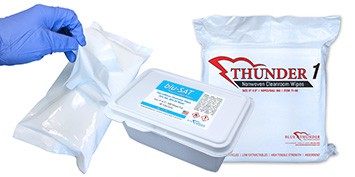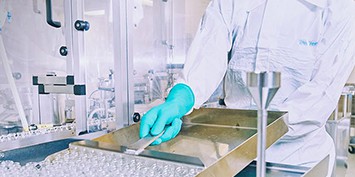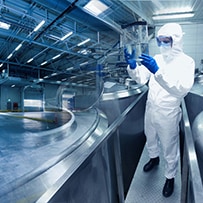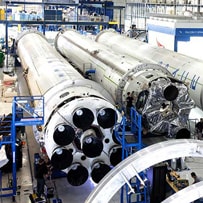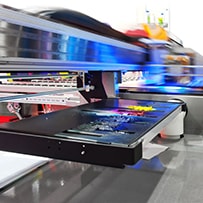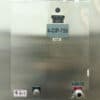Stainless steel equipment and furniture are often used in cleanroom environments because it can meet the stringent hygiene requirements. Stainless steel is known to be robust and able to withstand the most rigorous cleaning processes. It is also versatile when it comes to design, which allows steel furniture providers to help their customers comply with regulatory criteria by working with them to deliver tailor-made solutions when necessary.
Austenitic stainless steels, like Grade 304-grade steel, provide excellent corrosion resistance, and easy cleaning and disinfecting. They also operate well in harsh environments.
Stainless steels, such as 304-grade steel, not only provide excellent resistance to corrosion but they are also easy to clean and disinfect without loss of their properties and their robustness for operating in a harsh environment. The ability to clean 304-grade stainless steel is often compared to that of glass – it has no pores or cracks that might collect dirt, grime, or bacteria, and it can often be cleaned with soap and water, then disinfected.
It is important to note, that operating with stainless steel in an acid or alkali environment can damage the surfaces of the handling area. Specifically, this type of environment often creates surface pitting that retains bacteria and contaminants. Grade 304 stainless steel is basically inert to most acids and alkali. As such, it avoids the risk of corrosion creating contamination traps.
Furniture and equipment made from type 304 steel can withstand the most rigorous cleaning without corroding, whether by high bar pressure cleaning, thermal high temperature, or chemical detergent cleaning. Further, it maintains structural integrity even at 870°C and chloride content up to 200/mg/l.
If more extreme conditions exist, austenitic 316-grade steel should be used as it includes more nickel and molybdenum, which offer more stringent corrosion resistance effective against rigorous cleaning routines, including chloride contents up to 500/mg/l.
At Blue Thunder Technologies, we can help you find the right stainless steel benches for your situation. Cleanrooms and sterile environments require working around chemicals, so the workbenches and other furniture need to be able to withstand a chemical spill and intense cleaning. We recommend 304 and 316 for such applications, as both are corrosive resistant, and type 316 is commonly used in the pharmaceutical and medical industry manufacturing environments.
For advice or information, get in touch with our trained, professional staff today.
